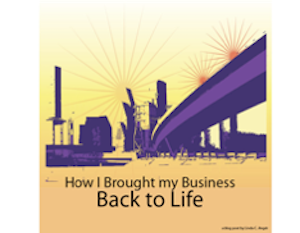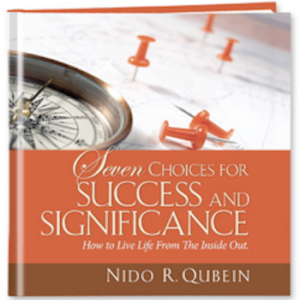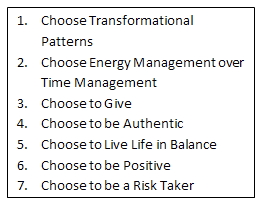
It’s the lure of the open road, in some regards. The desire to be the master of your own ship, own your own clock, give your work life meaning. It’s the lure of the entrepreneurial life, and some folks are better suited for it than others.
Here are three must-have entrepreneurial traits that are the foundation of success:
Risk-Taking
Starting your own business is a risk. It takes guts, it takes stamina, and it takes a willingness to fail. I disagree with those who say “Failure in not an option.” Einstein, Ford, Hill, and a least a dozen other business gurus have adamantly stated that failure is our greatest teacher. Remember, though, that there are risky risks, and calculated risks. The entrepreneurs that become fearless leaders and successful business owners know how to discern between the two. Did you know that Henry Ford failed at several automotive-related businesses before he founded what is today one of the largest corporations in the world?
Adaptability
Ever read “The Origin of Species” by Charles Darwin? The species that survives is the one that adapts. The species that don’t or won’t adapt, become extinct. Entrepreneurs frequently sail uncharted waters, and scale unknown mountains. You never know what to expect as a business owner, but if you are ready and able to adapt, you will learn, grow, and survive in one form or another.
Curiosity
If there were only one characteristic that defined entrepreneurs, it would be curiosity. A “Question Everything” attitude just flows through our veins, and is the lifeblood of innovation and success. A better way, a new idea, or a breakthrough treatment is out there somewhere, and the one who allows their curiosity to lead them into the unknown is the one who succeeds.
Summary
Entrepreneurs are everywhere—there’s not an industry in the world that didn’t begin as an idea in someone’s head. But not everyone is cut out to be an entrepreneur. It takes curiosity, adaptability, and a risk-taking attitude, among other qualities.
Do you have what it takes?
 We call the bad things, the dysfunctional things “lemons.” We say, “When life hands you lemons, make lemonade,” meaning throw a bag of sugar over it so you don’t see the dysfunction, the mechanical failures, the sourness of your situation.
We call the bad things, the dysfunctional things “lemons.” We say, “When life hands you lemons, make lemonade,” meaning throw a bag of sugar over it so you don’t see the dysfunction, the mechanical failures, the sourness of your situation.
 The author, Dr. Nido R. Qubein, came to the United States from the Middle East when he was 17, with just $50 to his name and little knowledge of the English language. Today, he is the President of High Point University in North Carolina, and Chairman of the Great Harvest Bread Company, with 225 stores in 43 states.
The author, Dr. Nido R. Qubein, came to the United States from the Middle East when he was 17, with just $50 to his name and little knowledge of the English language. Today, he is the President of High Point University in North Carolina, and Chairman of the Great Harvest Bread Company, with 225 stores in 43 states. 